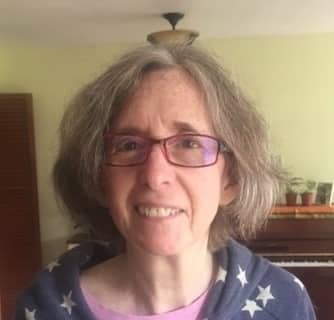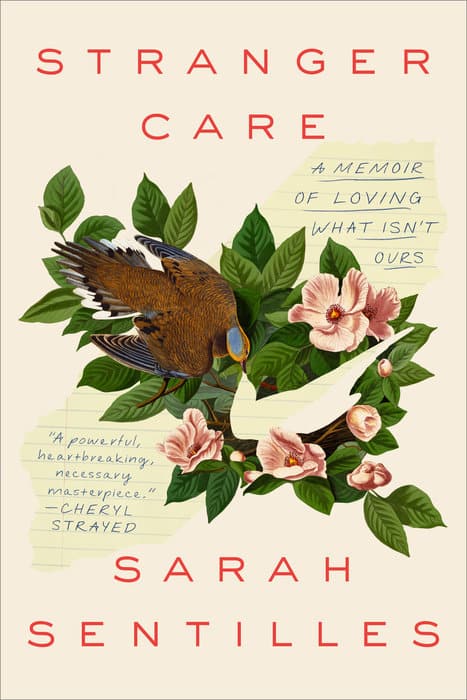Some Fourth of July, huh? I’m glad you called when you did. My timeshare is only a few houses down…get a towel, man. You’re still dripping.
So, to confirm, you have no recollection of what happened after you took the boat out with your niece?
I know, I know, slow down. Let me think. I need to work this out in my head so we—everyone—has their story straight. You told me over the phone that your wife doesn’t know anything. Not the whole thing, at least. That’s good. We don’t need anything else from her, so long as she doesn’t slip outside your alibi—if you need one, of course. Sorry, I’m getting ahead of myself.
Did you say you often lend your boat out to family? Like your brother-in-law? Was he in town last night? Ah—I forgot—he’s in Bristol for the holiday. What about the others, do they sail too?
Hey, it’s not like we’re implicating anyone. That’s not what I do. I work with plausible deniability. We’re just seeding reasonable doubt, that’s all. It’s my job. Do you want to come out on the other end of this? If you do, you’ll listen to me.
Right now, if they suspected anything of you, all the evidence would be circumstantial. Anyone in your family could’ve taken that boat out last night. Son, cousin, sister. Your niece might have gone out there all by herself, came back, and took a bus to wherever she came from. She used to be so into sailing back in high school if I remember correctly. How many sets of keys do you have…four? Well, I only see three. Someone must’ve taken them, understand? You see where I’m going now?
When they ask about the boat, don’t even relinquish to the possibility of you going out on the lake. I mean, you were so drunk how could you know?
What was that? Fingerprints aren’t an issue, so put that out of your mind. Our real challenge is keeping it straight and keeping it quiet. We have no reason to be worried about anything yet. No body, no evidence of a struggle, no motive anyone’s aware of. Well, besides you and me. So, when the police arrive, don’t give them an inkling about what might have happened between you and her.
You don’t remember telling me, huh? You told me what went on between you two. That your niece seemed to forget all about it when she showed up for dinner out of the blue. That, before last night, you hadn’t seen her since she left for college. You seriously don’t remember telling me this? You need to watch your drinking from here on out. You told me enough about it anyway. Not like I wanted to hear it.
The sun is about to come up, and everyone will start wondering where she is, which even you don’t know. They’ll look around while you’re sleeping. When you finally come downstairs, be calm. Don’t be too sobby or too worried, alright? Call the police after you make your rounds. Check the shed, the guest house, pool house. Does she have any friends still in the area? Call your neighbors, even the bus depot. No one knows where she is. That’s the truth. That’s our truth. Last night could’ve been a dream, for all you know.
Back to the subject of the police—hey. Hey! I need you to focus. Look in the mirror. Look at yourself. You got this glassed-over look. It means you’re thinking about something and any two-bit cop, even around here, is going to figure out that you’re hiding something. I can tell you’re thinking about her right now. You’re replaying the situation—wait—is that her right there? The one with the little fish on the line. Huh, pretty. Hopefully, the press won’t catch wind, but if they do make sure they get this photo.
Okay, let me recap what you said over the phone. After dinner, you believe you two stayed up after everyone went to bed. She’d just turned 21, so there’s nothing wrong with having a nightcap with your niece. You all get to talking about everything. About what happened a few summers ago, how it wasn’t so bad. You two get to reminiscing, but then, all of a sudden, it was just like before: both of you, up later than everyone else, moon on the water, summer breeze. It wasn’t that bad, right? She was just a little younger, huh? I don’t care what you do behind closed doors, man, but you certainly had to think this would come back. I’m sure when she walked in, now in her twenties—a woman—it must’ve really sent you back. Having dinner, laughing, that rushing excitement of a shared secret with everyone around the table clueless to the truth. And then you two took the boat out—at least you think you did. Then it’s just…what? Black? Fuzzy? Well, that’s good. You don’t even know if you two had an argument. She was just gone. She just wasn’t on the boat anymore. But all you need to say is that you don’t definitively remember anything after your…let’s say second drink at the house.
Have you told your wife that those business trips were lies? That you’d come around here instead? Might be best if you did. I’m sure she’s wise to it anyway. I can imagine what she thought when she saw your face as your niece walked in to surprise you all. Like a shadow crawled into you. After your wife talks with the police, she should stay in her room, you know, bad lobster from last night. Keep her alone to keep her story together. The same goes for you too. Drill it into each other.
The sun’s coming up and I should go. Knowing your family, one of them is bound to be up for an early morning jog, and they shouldn’t see me yet. Get yourself together. Take a shower and snap yourself into the present. Got me?
When the police arrive, I’ll pop in like a concerned neighbor wondering about all the commotion. Stay calm. I’ll see you soon.
Matt Gillick is from Northern Virginia. He went to Providence College. He received his MFA from Emerson College in 2021. Find his other work in New Square, Sincerely Magazine, BOMBfire, and Newfound. He’s working on a novel about homelessness, domesticity, and September 11th.
***
Antiracist resources, because silence is not an option
~~~~~~~~~~~~~~~~~~~~~~~~~~~





